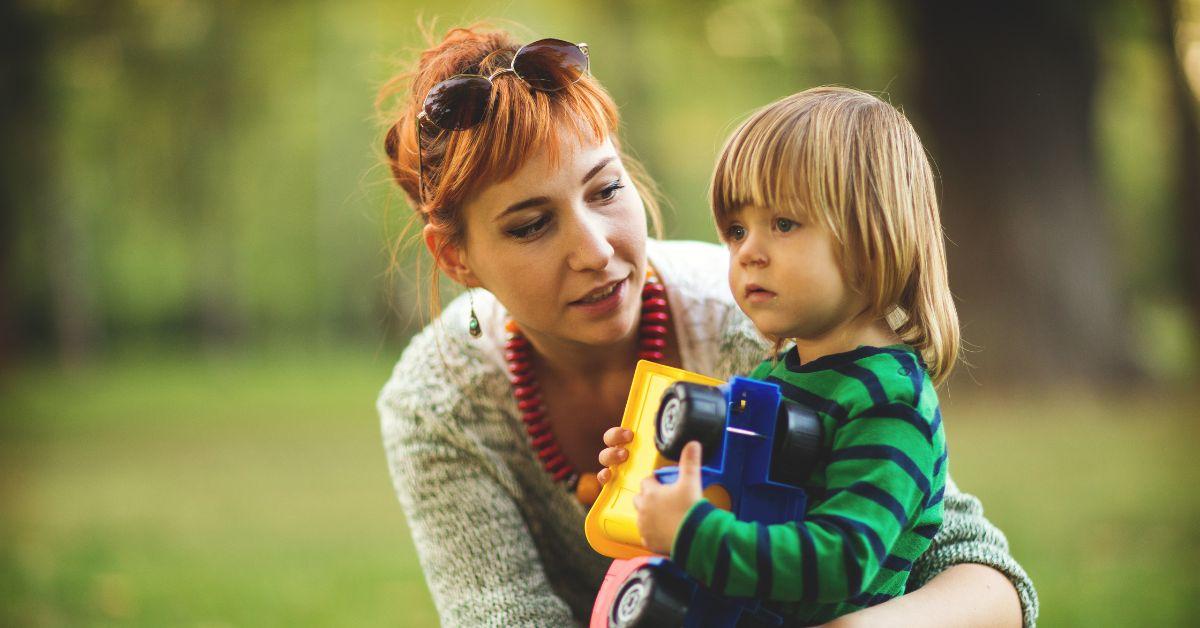Creating A Sleep Schedule For 2 Month Old Children
Two-month-old children can be fussy about sleep timings. It is often a big challenge to get your newborn adjusted to a sleep schedule as a new parent. It takes some time and a great deal of patience to accomplish this. So, you need to understand all the nooks and corners of the sleep schedule for 2-month-old children.
Usually, two-month-olds need about 14 to 17 hours of sleep a day. The total time can be broken down into several daytime naps and a good nighttime routine.
The real struggle is to get your two-month-old settled into a perfect routine. Often, babies tend to oversleep during the day, which keeps them awake at night. So, sleep training is essential for them. This article will discuss all these relevant facts about your two-month-old baby’s sleeping schedule and more! So, please read the entire article to find out more.
Why Is Sleep Training Important For Two-Month-Olds?
Generally, by the age of two, a baby learns to gain some adaptation to its sleeping schedule. If you don’t adjust the baby to a plan, the entire routine gets disrupted. Ultimately, it affects feeding times, sleeping times, playing times, etc.
Before the age of two months, most babies don’t have control over when they fall asleep. It is due to a lack of coordination between the higher center and the bladder. Also, some babies tend to sleep during the day. As a result, they remain wide awake at night with open eyes!
So, if you train your baby for a brief period, slowly, it will learn to adapt to the sleeping schedule. Often, parents complain that their baby doesn’t sleep much at night. In such a case, good history must be taken and assessed. The baby may have an underlying infection or disorder as well! So, all possibilities must be excluded beforehand.
Sleeping is the most critical part of a baby’s routine. Because, during the initial days, they spend most of the time sleeping or napping. When the baby learns to control how to feed, urinate, or defecate, the sleeping habit starts to change.
In this sense, the urge to sleep can change based on the response to different stimuli. If you create a pattern of stimuli and a perfect ambiance for sleeping, your baby will fall asleep faster! Just after birth, the response to these stimuli is not developed that well. It usually appears after two months.
So, you see, if you train your baby to fall asleep at the desired time, your baby won’t be waking up at night or messing with the routine. The adjustment may require a few days, but it is for the betterment of your kid. Hence, sleep training is very important for two-month-olds.
How Should A Two-Month-Old’s Sleep Schedule Be?
A two-month-old requires about 14 to 17 hours of sleep. You can not expect the baby to sleep at a stretch. The total sleeping time needs to be divided into some healthy fractions. Likewise, you need to have about four to five napping times.
A two-month-old can sleep as little as 14 hours a day or 17 hours. It will differ from baby to baby. It also depends significantly on the environmental conditions and how long the baby will sleep. With age, the napping times decrease, and so does the total sleeping time. Below, I have made a schedule for the napping times of a two-month-old.
Napping Times
A nap is like a short sleeping period. It is not as long as nighttime sleep. A nap can range from ten minutes to three hours at best. Now, if you keep 11 or 12 hours of nighttime sleep, you can divide the rest of the day into five convenient napping times.
Here, a perfect balance must be maintained between the feeding times and the naps. Sometimes, the baby needs food to fall asleep. Most babies are trained so that they need to suck on their mother’s breast to fall asleep. Without this, it is often difficult to put them to sleep.
So, if you want a brief overview or an example of how the napping times should be, take a look at the following schedule.
Waking Up In The Morning
As per general rules, it is an excellent habit to wake up early. Also, in the case of babies, you must develop this habit from a very early age. Otherwise, the baby will tend to wake up late and have difficulty waking up early in the morning.
So, make sure your baby wakes up at eight o’clock every day. It will help put your baby to sleep early at night as well. In this way, you can remain tension-free too. You should be extra cautious regarding when your baby is waking up. Waking up early is a healthy habit for any age group.
Dividing The Naps
Now, if the baby wakes up at eight o’clock, you need to make sure the first nap starts about one or one and a half hours later. The best time is at about 9 o’clock or 9:30 AM. So, at 9:30 AM, the first nap begins and ends at 10:30 AM. Thus, the first napping time is around one hour.
Similarly, keep the subsequent napping times at 11:15 AM, 2 PM, 3 PM, and 4:30 PM. Attempt to keep all of these napping sessions for at least 85 to 90 minutes. However, the baby may nap for fewer than 85 minutes in any of these sessions, say, ten minutes. Then, the number of napping sessions can be increased.
The naps mainly sum up to the total daytime sleep. So, all naps should sum up to be at least five hours. Therefore, the napping schedule should look like this-
- The baby wakes up at 8 AM.
- The first nap begins at, say, 9:30 AM and ends at 10:30 AM. It allows the baby to have an excellent one-hour rest with a ninety-minute pre-nap awake time.
- The second nap starts at 11:30 AM and ends at, say, 12:45 PM. It accounts for about one hour and fifteen minutes of napping time, with a one-hour pre-nap time.
- The third one continues for an hour and fifteen minutes from 2 PM to 3:15 PM. Before that, the baby will be awake for another one hour and fifteen minutes.
- The fourth nap will begin at around 4 PM and end at 5 PM. So, this is like a one-hour nap with a 45-minute awake time before it.
- The fifth and final nap is from 7 PM to 7:45 PM. It is the shortest nap, continuing for 45 minutes. The pre-nap awake time is about two hours.
- Then prepare the baby for bedtime. The first night of sleep should begin at 9:30 PM.
- So, start preparing at 9 PM. Before bedtime, the baby gets about 1.75 hours. Complete all tasks within this period. Then put the baby to sleep for nighttime.
- However, if you plan a four nap schedule, you can start getting ready for bedtime at 7:45 PM. So, by 8:15 PM, the baby will be fast asleep!
Bed Time Sleep
Typically, it should begin at 9 PM. It is good if you start earlier. Because you need enough time for sleep preparation, your infant won’t sleep right away after you sing a lullaby. You need to set the ambiance and create the mood and intention.
So, by 9:30 PM, the baby starts to feel drowsy, and at one point, sleep kicks in. It is one of the ideal methods. However, it is not a given that the baby will sleep for a stretch until the following day. But with time and practice, you may achieve this as well. The baby should get a good amount of sleep, usually 11 hours a night.
Ways To Put A Two Month Old To Bed
A fussy little one can be a tough nut to crack. Any newborn is a tough nut to crack when figuring out ways to make it fall asleep. In this regard, the traditional methods are quite fruitful. However, it must be challenging for you to understand as a new parent, even when your little one wants to sleep!
You can try out several things to soothe your infant to sleep. The most important thing to remember here is that the schedule adjustment depends on how you train your baby. So, below I would like to point out some fundamental ways by which you can put your baby to sleep.
Recognizing Patterns Of Sleeping And Waking Up Windows
Not all babies will fall asleep in the same pattern; that’s a given. So, try to understand the sleeping habits of your munchkin! It is the first and most essential step to creating a sleep routine. Most importantly, what you can do here is keep a notebook or a diary to jot down your sleeping patterns.
For example, you could list the observations you made over a week. It will help you to compare the routine every day or every week. Also, make sure you pay close attention to when the infant stays awake. Mainly, this is widely known as the Wake Window. It indicates how alert your infant is or whether it is suffering from tiredness.
So, make a few columns – waking time, napping times, wake windows, bedtime, feeding times, playing times, etc. Now, start with when your infant falls asleep or naps. Routinely, note down the patterns and times of each day.
Observe how many naps the infant is taking. Four to five naps are fairly good. It would be helpful to make a separate column to keep track of how many hours the baby is sleeping a day. Next, use this comparative study to recognize all your baby’s patterns. You will gradually get habituated to all the patterns at the end of the week.
Do Not Put Your Baby To Sleep Forcefully
Two-month-olds are very delicate and need to be handled with great care. Otherwise, it may start to affect other aspects of their health. If your baby doesn’t feel like sleeping, try to be gentle. Don’t force it to sleep right away. Try to soothe it out first. Then, observe if it wants to sleep. If it still doesn’t respond well, then abort all efforts.
Most babies have their biological clock, which is also called Circadian Rhythm. In brief, it is the pattern of every biological activity we do. Babies have a different biological clock than adults. You can understand this as their sleeping time is even 14 hours! So, babies tend to fall asleep as per their rhythms.
Therefore, you must be flexible and subtle about putting your baby to sleep. Do not be harsh or overdo anything that is not necessary. Let nature do the rest!
Look Out For Signs Of Sleepiness
Your baby will show signs when it starts to feel drowsy. The playfulness reduces; suddenly, it becomes lethargic, and you may yawn or rub your eyes. Sometimes, the baby becomes irritated or even starts to cry. These are the most typical manifestations.
So, whenever you see these signs, let the baby fall asleep on its own. Do not go on feeding the baby. The baby should now adjust to sleeping without your assistance. If the baby doesn’t learn soon, don’t jump off the couch to help. Give it some time. Babies at this age are very delicate, so they need time to adjust to even the smallest changes.
Establish Some Routine Cues That It Is Time To Sleep
What you need to do here is, set some cues that will help the baby realize that it is time to sleep. You can arrange for bedtime stories, read books together, cuddle, play with toys, watch cartoon video clips, etc. Anything of this sort, if done every day, will help the baby remember the cues.
Gradually, the baby will learn to relate to the situations and fall asleep at a fixed time every day. It is beneficial and also helps to boost memory power. It may also strengthen the bond between you and your baby as you spend a considerable amount of time together.
Even a simple lullaby can create signals that transmit to the frontal cortex, telling the baby that it’s time to sleep. It acts as reassurance, and it also enhances the circadian rhythm.
Leave Some Clues To Make The Routine More Obvious
It is kind of similar to the previous one. Here, you can leave behind clues and cues before every activity. So, not only for sleeping times, but you can also make characteristic moves to reassure the baby that it is time to feed, nap, or play.
Babies tend to remember the clues more. The babies hardly have good memory power in the initial stage. But by setting up hints, you are making it easier for the baby to remember as the same routine repeats every day. For instance, you can put the baby to sleep by feeding, waking up with cuddles and kisses, hugs, etc.
Don’t Be Over caring
Some parents tend to be overbearing. It’s OK to love your children a lot, but don’t go overboard. Once, your child must learn to be self-sufficient.
After two months, babies start to learn to soothe themselves independently. If you create an obstacle in this learning process, your child will never become independent. Don’t rush to the first noise or any little crying you hear. Let the baby calm down on its own.
Besides, you can keep a baby monitor to survey the baby’s activities. In this way, you will know when the baby needs your help. Then, you can go and tend to the baby’s needs. However, if help is not mandatory, do not keep tending to your baby’s every need.
Give It Some Time
If you expect to create a perfect, well-timed schedule and get your baby used to it overnight, you are daydreaming. A two-month-old baby has just been on this earth for sixty days. It still has a long way to go to settle down and adjust to the environmental conditions. Yes, it may be viable enough to survive on its own. But adjustment of this kind requires time.
In particular, the activities of the biological clock require a significant period to get well adjusted. So, be patient with your baby and the schedule. Great things need time to evolve. Give your baby the time it needs. Don’t rush, don’t panic. Things will fall in place on their own.
Get Some Bright Light
Keep the baby in a very well-ventilated room with big doors and windows. So, in the morning, the sun’s rays can enter directly into the room. The sunlight will slowly help the baby to wake up. Usually, if you turn on the curtains about half an hour before your baby wakes up, the process becomes more manageable.
Also, you can take your little one out and get it adjusted to sunlight. Walk around holding your baby in your arms or using a stroller. Getting habituated to the morning light is good for your baby and its health. Besides, sunlight is a good source of Vitamin D. It is crucial for babies of this age group.
Refrain From Using Electronic Devices Before Bedtime
We know that electronic devices primarily emit blue light, hampering sleeping patterns. In particular, devices with a screen have this blue light-emitting capacity. These lights can inhibit the secretion of hormones that induce sleep and activate the hormones which prevent sleep.
So, do not show your baby anything on the screen before bed. Infants’ eyes are even more sensitive than adult ones. You can use night lights or switch to night mode. There is the minimal capacity to emit blue light in both these cases. So, your baby’s sleeping pattern won’t be hampered.
Signs To Look Out For To Know If Your Baby Is Getting Enough Sleep
Babies can get fussy very quickly. Even any average person will show signs of irritability if he does not get a good amount of sleep. Moreover, as mentioned before, babies are more sensitive to changes in their routines.
Besides, your baby must get 14 to 17 hours of sleep on average per day. Anything more or less demands attention. There are some evident signs that you should know to understand whether your baby is getting enough sleep or not. So, read the next part to know about these in detail!
Baby Cries More Than Before
When a baby is upset, the first thing you’ll notice is that it cries uncontrollably. Nothing can calm or put the baby to sleep! There’s no denying that babies cry. However, an excess of anything can be recognized and grow more apparent with time. If your kid cries a lot, they aren’t getting enough sleep.
Remember to make a sleep chart to analyze whether the baby is getting ample sleep and naps. Or, you can simply keep a notebook. Just record if the baby is sleeping enough. There might be an underlying problem if it is not within normal ranges.
Check if your baby has a fever, a cough, or any newly developed symptoms. If it is anything serious, you may need medical help. So, be cautious about the sleeping patterns of your baby!
Reluctance To Eat
Often, when the baby is irritated due to lack of sleep, they don’t feel like eating much. Probably, they experience gut discomfort, which interferes with their appetite. You can easily understand this if you observe your baby closely.
Moreover, you know how much your baby usually eats. Of course, some babies do not feed much regularly or show reluctance to food. But any deviation from normal behavior deserves attention in this case. As a result, pay attention to if your child throws tantrums when you offer to feed them.
These situations often get corrected on their own when the baby gets enough sleep again. So, please get to the root of the problem, and make sure he gets a good night’s sleep!
Baby Remain Irritated And Seeks More Attention
Babies sometimes behave like cats. They come near you and demand love and affection when they are in the mood. But if they get pissed off, they will drift away from you. This kind of behavior is very common in babies. They don’t like to be pampered a lot, or even less.
On the other hand, a baby who is not getting sufficient sleep and remains irritated all the time is not as content as the former. This kind of baby won’t come to you to ask for more love and affection. The baby would remain fussy all day long!
You need to see the changes in behavior to understand this better. Besides, an irritated baby is not hard to recognize. Although lack of sleep is an important cause, there may be other significant problems. So, make sure you pay attention to your child’s every need.
Baby Doesn’t Wake Up Early
So, if there are changes in the sleep patterns, it is understandable that the timings would change overall. A baby who doesn’t get complete sleep at night will oversleep during the day. Again, a baby who overslept till morning will sleep late at night. The baby may remain awake for most parts of the night.
These signs are essential to understand if your baby is getting enough sleep. Early to bed and early to rising makes a baby healthy and wise! So, if the baby is not going to bed early or rising early, the sleep hasn’t been adequate. Therefore, changes in sleeping patterns can affect almost all aspects of the baby’s health!
When To Seek Medical Advice?
Most importantly, you need to keep your baby under close supervision. You are the parent. You need to check if there is any obvious abnormal behavior. High fever, cough, respiratory distress, breathing problems, loose motions, vomiting, etc., are some of the peculiar signs that can occur along with lack of sleep.
However, the root of all these symptoms may not be sleep deprivation. So, when symptoms start to become severe, always seek medical attention. It is about the health of your baby. You must not ever compromise your baby’s health.
Conclusion
An infant depends on you for all its needs, starting from feeding until it goes to sleep. For two-month-old babies, getting sufficient sleep is a dire need. The best way to ensure this is to make a sleep schedule. In this article, I tried to explain all the facts about this that you may need to know.
So, I hope you got the answers to your queries regarding the sleep schedule for 2 months old children. Thank you for reading the entire article with patience. Have a nice day, and may your baby sleep well!






Jennifer Crowley
I'm Jennifer, a dedicated mother passionate about writing insightful blog posts. My life revolves around the joys and challenges of parenting and brings my unique perspective and experiences to writing, with a keen eye for detail and a love for storytelling. My blog is a platform for sharing parenting tips and advice and a place where I want to be with other moms and dads, offering them a sense of camaraderie in the wonderful, chaotic world of parenthood.